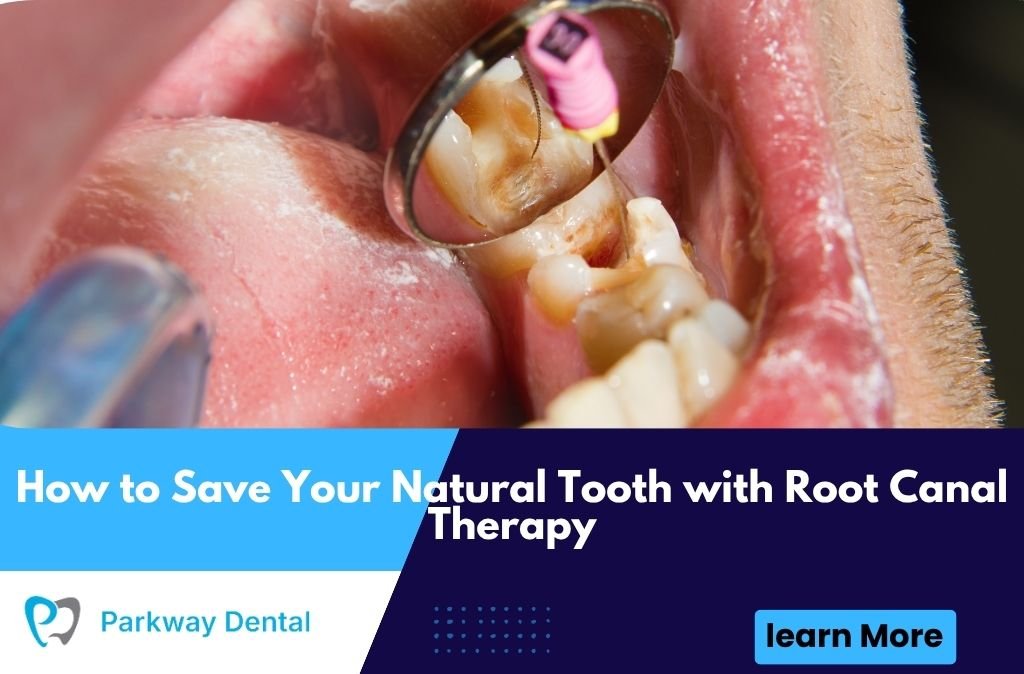Root canal therapy is a highly effective dental procedure designed to save your natural tooth when it’s damaged by tooth decay, infection, or trauma. Rather than resorting to tooth extraction, this treatment preserves your natural tooth, maintaining your oral health, chewing ability, and smile aesthetics. By addressing issues like severe toothache or dental abscess, root canal treatment prevents further dental complications and supports long-term dental wellness. In this comprehensive guide, we’ll explore how root canal therapy works, its benefits, the procedure, and how to care for your tooth post-treatment. Whether you’re in West Roxbury, MA, or elsewhere, this article provides actionable insights to help you understand and embrace this tooth-saving procedure.
Understanding Root Canal Therapy for Natural Tooth Preservation
Root canal therapy involves removing infected or damaged tissue from inside a tooth to prevent the spread of infection and avoid extraction. By preserving the natural tooth, this procedure maintains the integrity of your bite, jawbone, and smile, making it a cornerstone of restorative dentistry.
What Is Root Canal Therapy?
The root canal procedure targets the pulp, the soft tissue inside the tooth containing nerves, blood vessels, and connective tissue. When the pulp becomes infected due to deep tooth decay, a cracked tooth, or trauma, it can cause severe toothache, swelling, or a dental abscess. The dentist removes the infected pulp, cleans the root canals, and seals the tooth to restore its function and protect it from further damage.
Why Save Your Natural Tooth?
Preserving your natural tooth is preferable to extraction because it maintains your bite alignment, prevents jawbone loss, and avoids the need for tooth replacement options like dental implants or bridges. Root canal therapy allows you to keep your tooth, supporting chewing efficiency, speech clarity, and oral aesthetics without invasive replacements.
Benefits of Root Canal Therapy for Tooth Preservation
Root canal treatment offers numerous advantages, making it a preferred choice for addressing severe dental issues while keeping your natural tooth intact.
Relieving Severe Toothache and Infection
A tooth infection can cause intense pain, swelling, and sensitivity, impacting your quality of life. Root canal therapy eliminates the source of infection, providing immediate pain relief and preventing the spread to surrounding teeth or gums. This restores comfort and functionality to your natural tooth.
Preventing Tooth Extraction and Jawbone Loss
By saving your natural tooth, root canal therapy avoids the need for extraction, which can lead to jawbone loss and shifting of adjacent teeth. Preserving the tooth maintains jawbone density and supports facial structure, reducing the risk of dental complications.
Enhancing Smile Aesthetics and Oral Function
A natural tooth treated with root canal therapy and restored with a crown blends seamlessly with your smile, maintaining oral aesthetics. It also ensures continued chewing ability and speech clarity, unlike missing teeth, which can impair these functions.
The Root Canal Procedure: What to Expect
The root canal procedure is a straightforward, multi-step process performed by a dentist or endodontist to save your natural tooth. Modern techniques and anesthesia ensure a comfortable experience with minimal pain.
Dental Consultation and Diagnosis
The process begins with a dental consultation at a dental office in West Roxbury, MA. The dentist conducts an oral examination, often using X-rays to assess the extent of tooth decay or infection. Symptoms like severe toothache, swelling, or tooth sensitivity help confirm the need for root canal therapy. This evaluation ensures a tailored treatment plan to address your specific dental issue.
Administering Anesthesia and Accessing the Pulp
During the procedure, the dentist uses local anesthesia to numb the area, ensuring a pain-free experience. They place a dental dam (a rubber sheet) around the tooth to keep it dry and sterile. The dentist then drills a small opening in the tooth to access the infected pulp and root canals.
Cleaning and Shaping the Root Canals
Using specialized tools, the dentist removes the infected or damaged pulp and cleans the root canals to eliminate bacteria and debris. The canals are then shaped and disinfected to prepare them for sealing. This step is critical to prevent further infection and ensure the tooth’s longevity.
Sealing and Restoring the Tooth
After cleaning, the dentist fills the root canals with a biocompatible material, typically gutta-percha, and seals the tooth to protect it. In most cases, a crown or filling is placed over the tooth to restore its strength and appearance. The crown ensures the natural tooth can withstand chewing forces and blends with your smile.
Post-Root Canal Care for Natural Tooth Preservation
Proper post-root canal care is essential to maintain the health and functionality of your treated tooth. A consistent oral hygiene routine and follow-up dental visits ensure long-term success.
Managing Post-Treatment Discomfort
Mild pain or tooth sensitivity may occur for a few days after root canal therapy, manageable with over-the-counter pain relievers like ibuprofen. Avoid chewing on the treated tooth until the crown or filling is placed to prevent damage. If pain or swelling persists, contact your dentist immediately.
Maintaining Oral Hygiene After Root Canal
Brush twice daily with a soft-bristled toothbrush and fluoride toothpaste to keep the tooth and surrounding gums clean. Floss daily to remove plaque from between teeth, and use an antimicrobial mouthwash to reduce bacteria and maintain breath freshness. These habits prevent gum disease and protect the treated tooth.
Protecting the Crown or Filling
The crown or filling restores the tooth’s strength, but avoid chewing hard foods like ice or nuts to prevent damage. Sticky foods can also dislodge fillings or harm the crown, so opt for a balanced diet to support oral health. Regular dental checkups ensure the restoration remains intact.
Preventing Future Dental Issues After Root Canal Therapy
While root canal therapy saves your natural tooth, proactive measures can prevent the need for further dental treatments and maintain dental wellness.
Consistent Oral Hygiene Routine
A diligent oral hygiene routine is key to preventing tooth decay and gum disease, which can affect the treated tooth or surrounding areas. Brush, floss, and rinse daily to keep plaque buildup at bay. Dentists, often recommend electric toothbrushes or water flossers for enhanced teeth cleaning.
Avoiding Tooth Trauma
Protect your natural tooth from trauma by wearing a mouthguard during sports or if you grind your teeth at night (bruxism). A custom-fitted mouthguard from your dentist prevents damage to the crown or treated tooth, reducing the risk of dental complications.
Regular Dental Checkups for Monitoring
Schedule dental checkups every six months for professional cleanings and oral health assessments. Your dentist will monitor the treated tooth, check the crown or filling, and screen for signs of infection or gum issues. Early detection ensures timely intervention, preserving your healthy smile.
Who Is a Candidate for Root Canal Therapy?
Root canal therapy is suitable for most patients with a tooth infection or damage, but eligibility depends on specific factors evaluated by a dentist.
Oral Health Requirements
Candidates typically have a tooth with deep tooth decay, a cracked tooth, or a dental abscess causing pain or swelling. The tooth must have enough healthy structure to support a crown or filling post-treatment. Gum health is also assessed to ensure the tooth can be saved.
Cases Requiring Alternative Treatments
If the tooth is too damaged or the infection has spread extensively, tooth extraction may be necessary, followed by dental implants or bridges. A dental consultation in West Roxbury, MA, will determine if root canal therapy is the best option for natural tooth preservation.
Addressing Medical Conditions
Certain medical conditions, like uncontrolled diabetes, may affect healing after root canal therapy. Discuss your health history with your dentist to ensure the procedure is safe and effective. Managing these conditions improves outcomes.
Potential Risks and Considerations for Root Canal Therapy
While root canal therapy has a success rate of over 95%, understanding potential risks ensures informed decision-making and proper post-treatment care.
Risk of Infection or Treatment Failure
Though rare, an infection may persist if all bacteria aren’t removed from the root canals. In such cases, a retreatment or tooth extraction may be needed. Choosing an experienced dentist or endodontist minimizes this risk.
Tooth Sensitivity or Pain
Temporary tooth sensitivity or mild pain is common after root canal therapy, but persistent discomfort may indicate complications like an incomplete root canal or gum inflammation. Contact your dentist if symptoms don’t subside within a week.
Cost of Root Canal Treatment
Root canal therapy is more cost-effective than extraction and tooth replacement, but costs vary based on the tooth’s location and complexity. Many dental offices in West Roxbury, MA, offer financing options to make the procedure accessible.
Conclusion
Root canal therapy is a proven tooth-saving procedure that allows you to save your natural tooth, relieving severe toothache, preventing tooth extraction, and maintaining smile aesthetics. By understanding the root canal procedure, practicing diligent post-root canal care, and scheduling regular dental checkups, you can ensure the longevity of your treated tooth and overall oral health. Dentists provide expert root canal treatment and personalized guidance to support your dental wellness. For professional care to preserve your natural tooth, consult a trusted Dentist in West Roxbury, MA.
FAQs
Is root canal therapy painful?
Modern root canal therapy is performed under local anesthesia, ensuring minimal pain. Post-treatment discomfort is mild and manageable with pain relievers.
How long does a root canal procedure take?
The root canal procedure typically takes 1-2 hours, depending on the tooth’s complexity. Multiple visits may be needed for crown placement.
Can root canal therapy save my natural tooth permanently?
Yes, with proper post-root canal care and dental checkups, the treated tooth can last a lifetime, maintaining oral function and aesthetics.
What are the signs I need root canal treatment?
Symptoms like severe toothache, tooth sensitivity, swelling, or a dental abscess indicate the need for root canal therapy. Consult a dentist promptly.
How do I care for my tooth after root canal therapy?
Brush and floss daily, avoid chewing hard foods, and schedule regular dental visits to maintain gum health and monitor the crown or filling.






